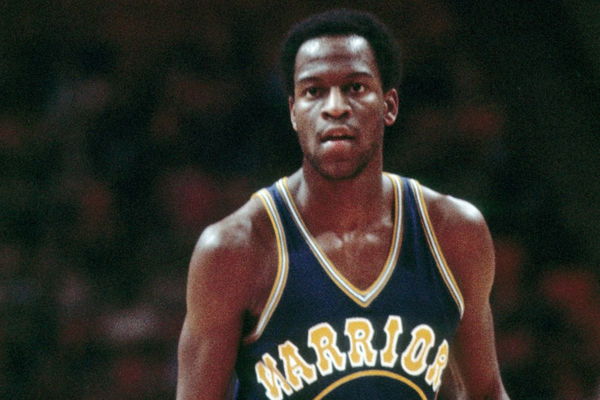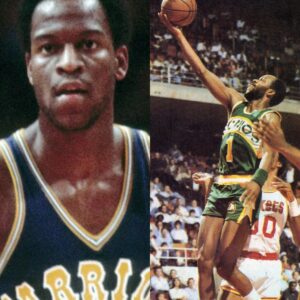“💔 The Tragic End of NBA Legend Gus Williams: Uncovering the Heartbreaking Truth Behind His Death 🏀😢”

The basketball world is grieving the loss of Gus Williams. A beloved figure whose dazzling skills as a point guard helped guide the Seattle SuperSonics to their lone NBA championship in 1979. Williams passed away on Wednesday at the age of 71, nearly five years after surviving a stroke.
At the time of his passing, the former SuperSonics star was living in a care facility near Baltimore. While the exact cause of death has not been revealed, his health struggles over the years were no secret. The 2020 stroke left him needing extensive care. And his condition, as shared by his brother David Williams, worsened in his final days.
David with a sense of deep grief described his brother’s body simply breaking down in the last four days. However, he found solace in the fact that Gus was surrounded by family during his last moments, with his daughter flying in to be by his side.
Notably, the last that fans might have spotted Gus Williams in public was during his appearances in the city. In 2017, he attended the WNBA All-Star Game. And two years later, he joined the Mariners in celebrating the 40th anniversary of the SuperSonics’ historic championship win. His presence during these occasions was a reminder of his enduring legacy and connection to Seattle.

But his ailing condition did not let him continue with such rare interactions with the fans. The challenges ‘The Wizard’ faced after his stroke were, however, met with support from the Sonics Legends Fund. The fund was created to help former players like Gus Williams and Slick Watts with their medical needs. Yes, there was a time when insurance alone could not cover Williams’ medical needs.
Gus Williams, fondly known as ‘The Wizard,’ for his extraordinary blend of speed, athleticism, and scoring ability, left an indelible mark on the basketball world. Over six remarkable seasons with the Seattle SuperSonics, Williams redefined what a point guard could be. He brought a dynamic scoring approach to a position traditionally focused on playmaking.
Emerging from USC as a second-round pick, he defied expectations to become one of the era’s most outstanding guards. Although Williams began his NBA career with the Golden State Warriors and finished with the Atlanta Hawks in 1986-87, his legacy will forever be tied to Seattle. It was there that he showcased his brilliance. Subsequently earning 2 All-Star appearances and prestigious All-NBA honors—First Team in 1982 and Second Team in 1980.
His career, however, wasn’t without challenges, as in 1980, a contract dispute led him to sit out the entire season, a move that highlighted his unwavering principles. His absence was keenly felt, as the SuperSonics’ win total plunged from 56 to 34 games.
And when Gus Williams returned in 1981-82, he delivered a season Seattle fans back from the day would always remember. Averaging a career-high 23.4 points per game, he finished fifth in MVP voting and earned the league’s Comeback Player of the Year award. Thus solidifying his place as a cornerstone of the SuperSonics’ success. There is not an ounce of doubt that his death is a major loss, not just to Seattle, but to the entire basketball community.

Leave a Reply